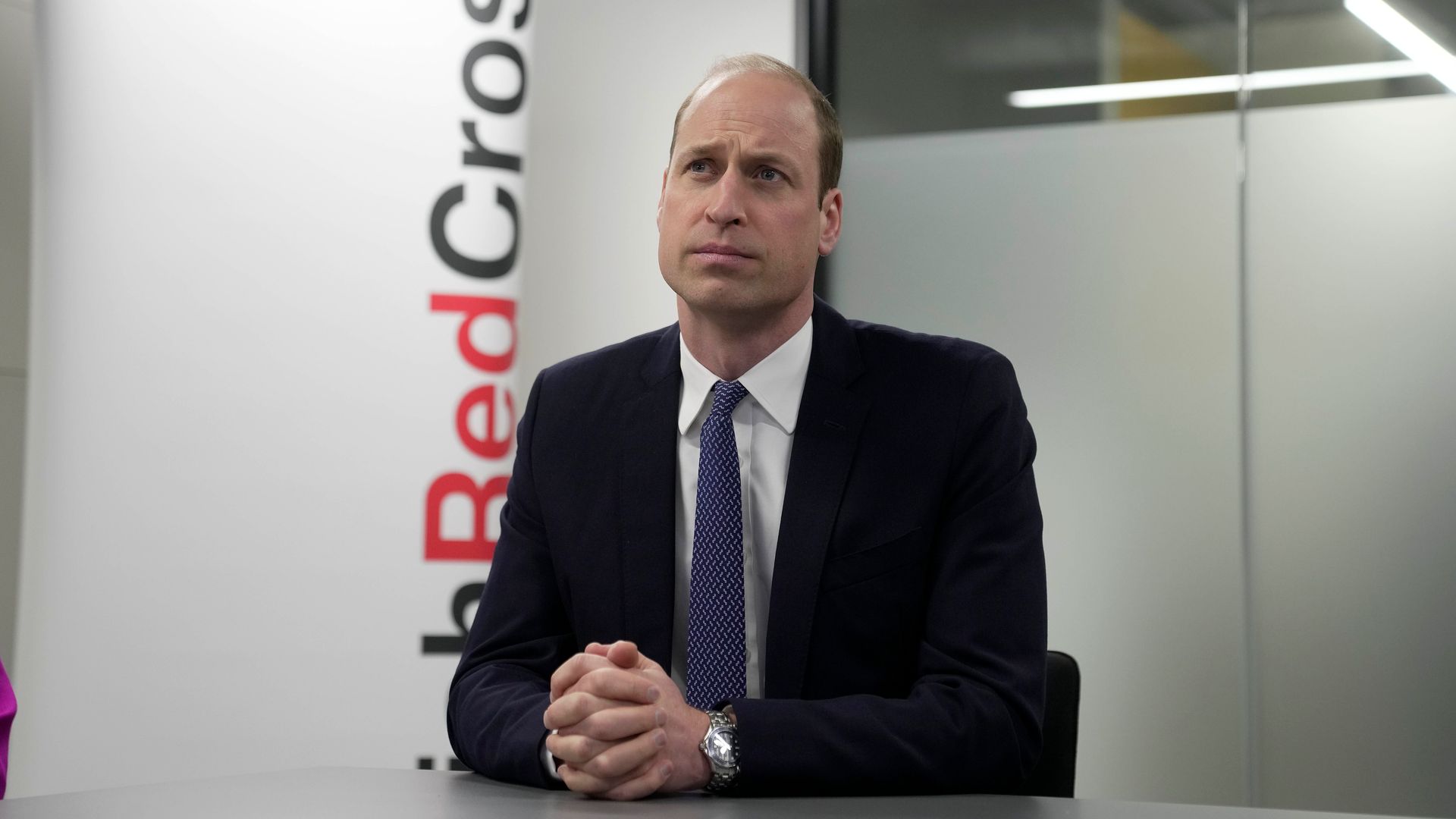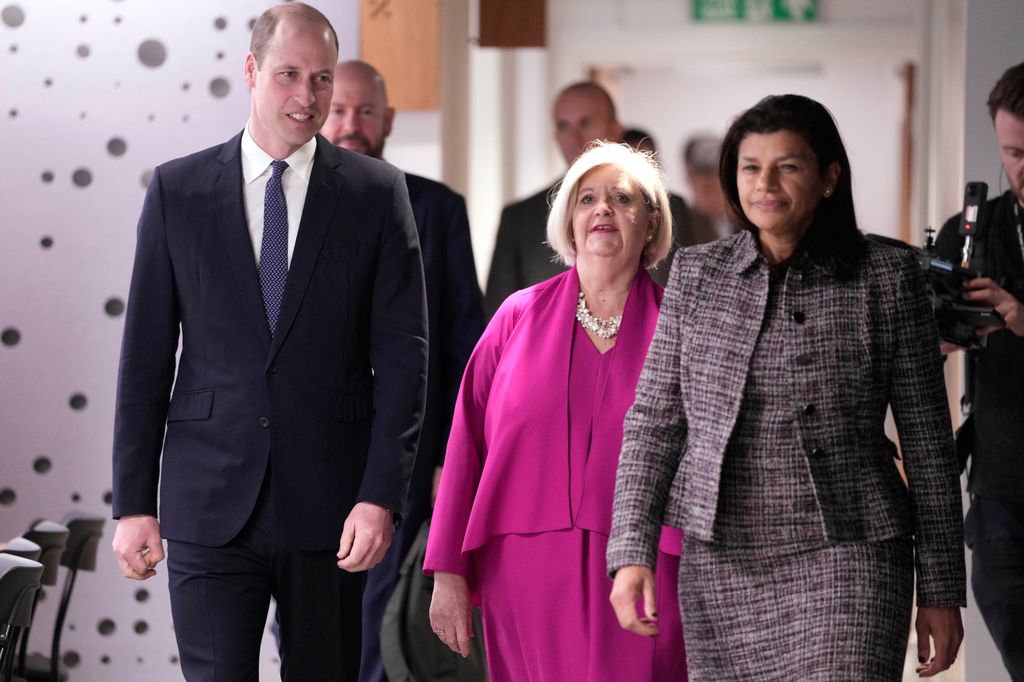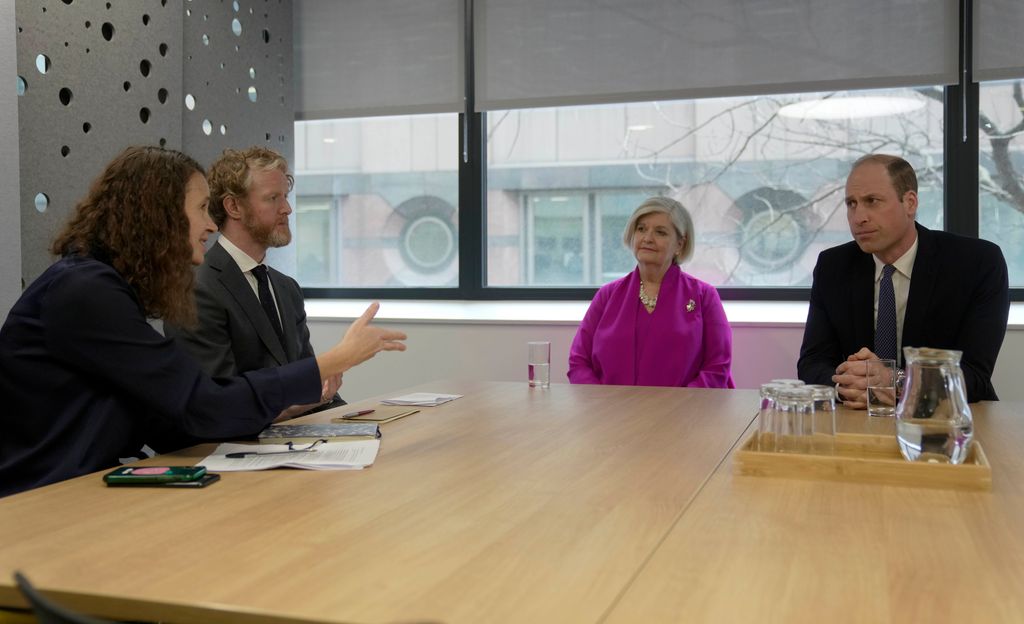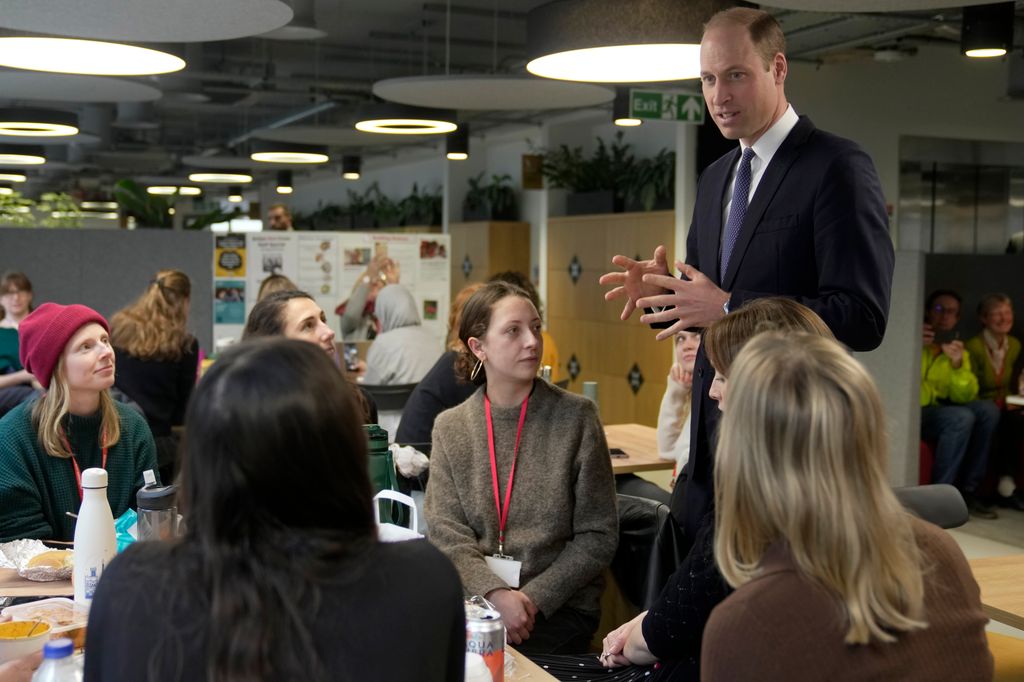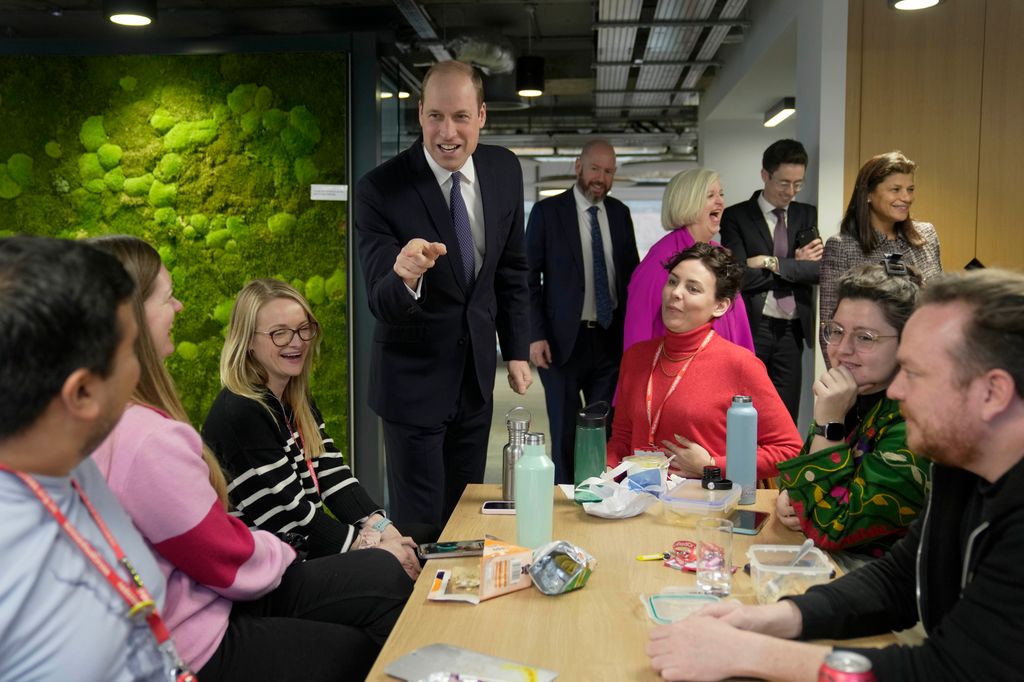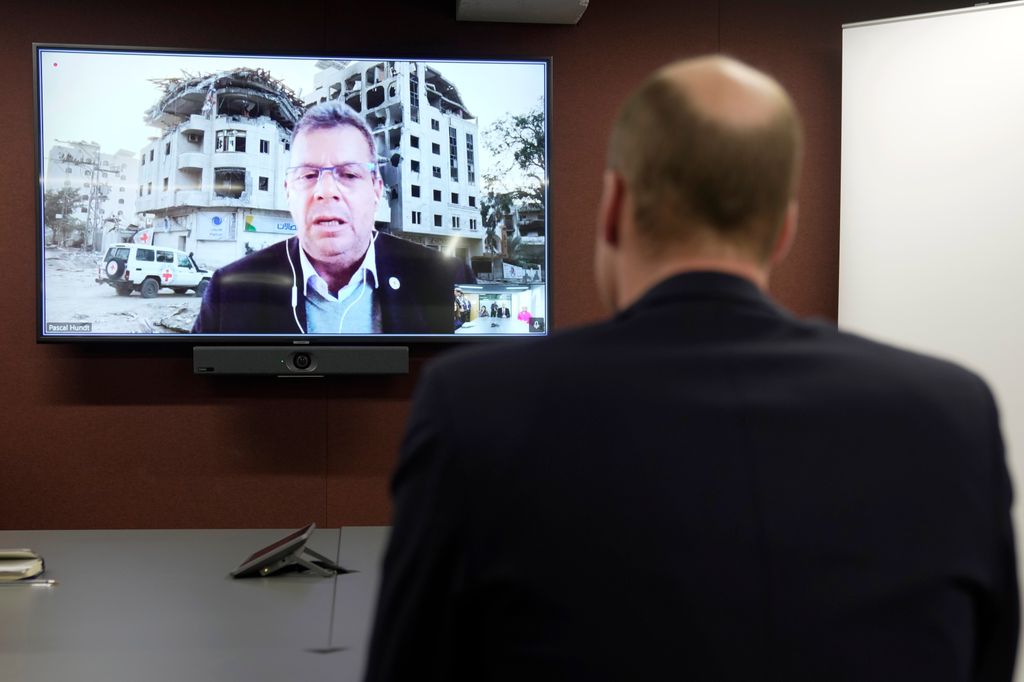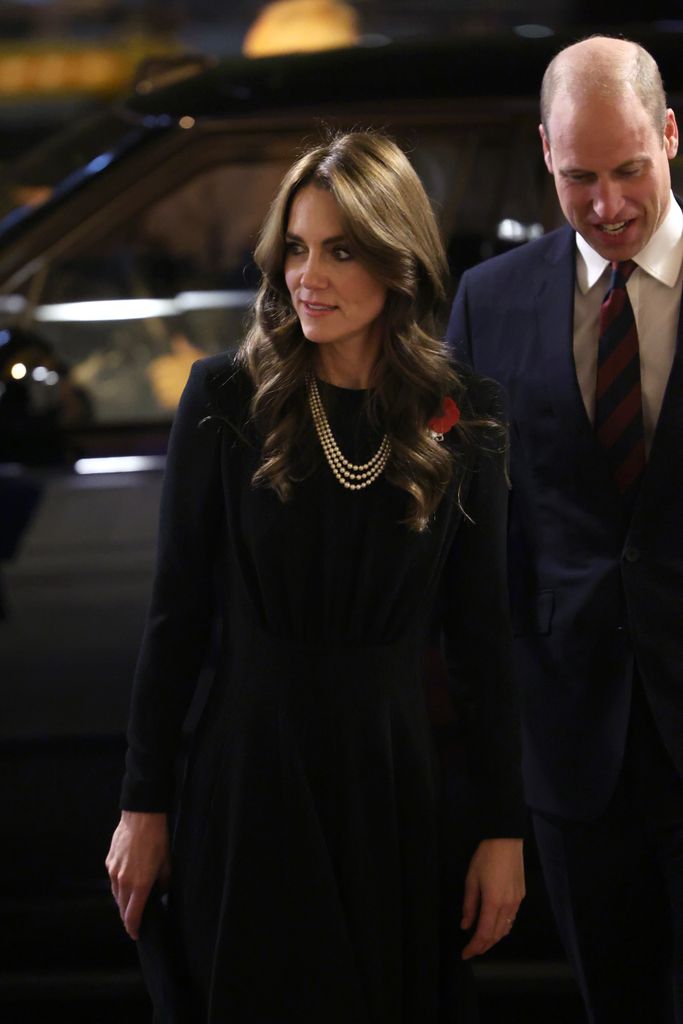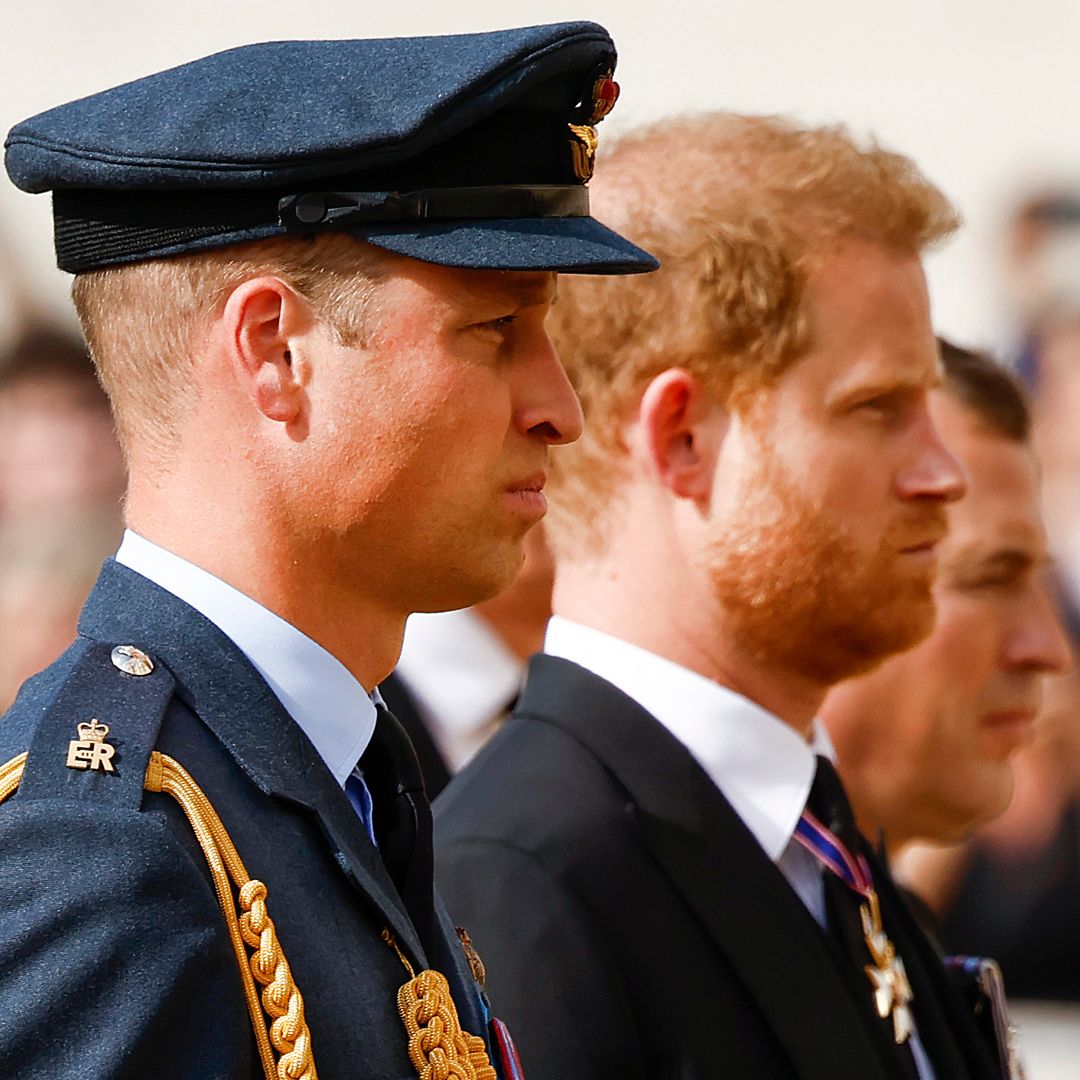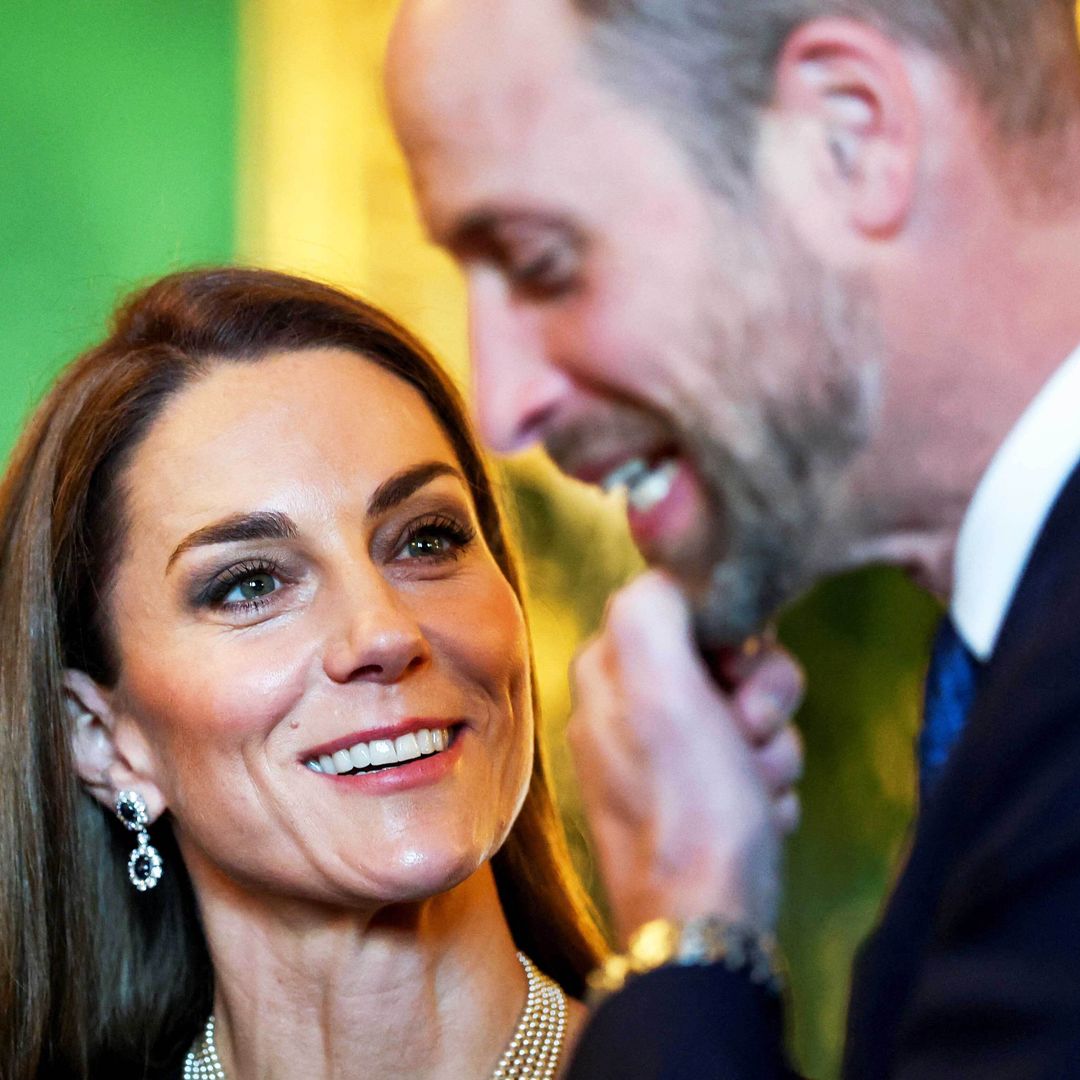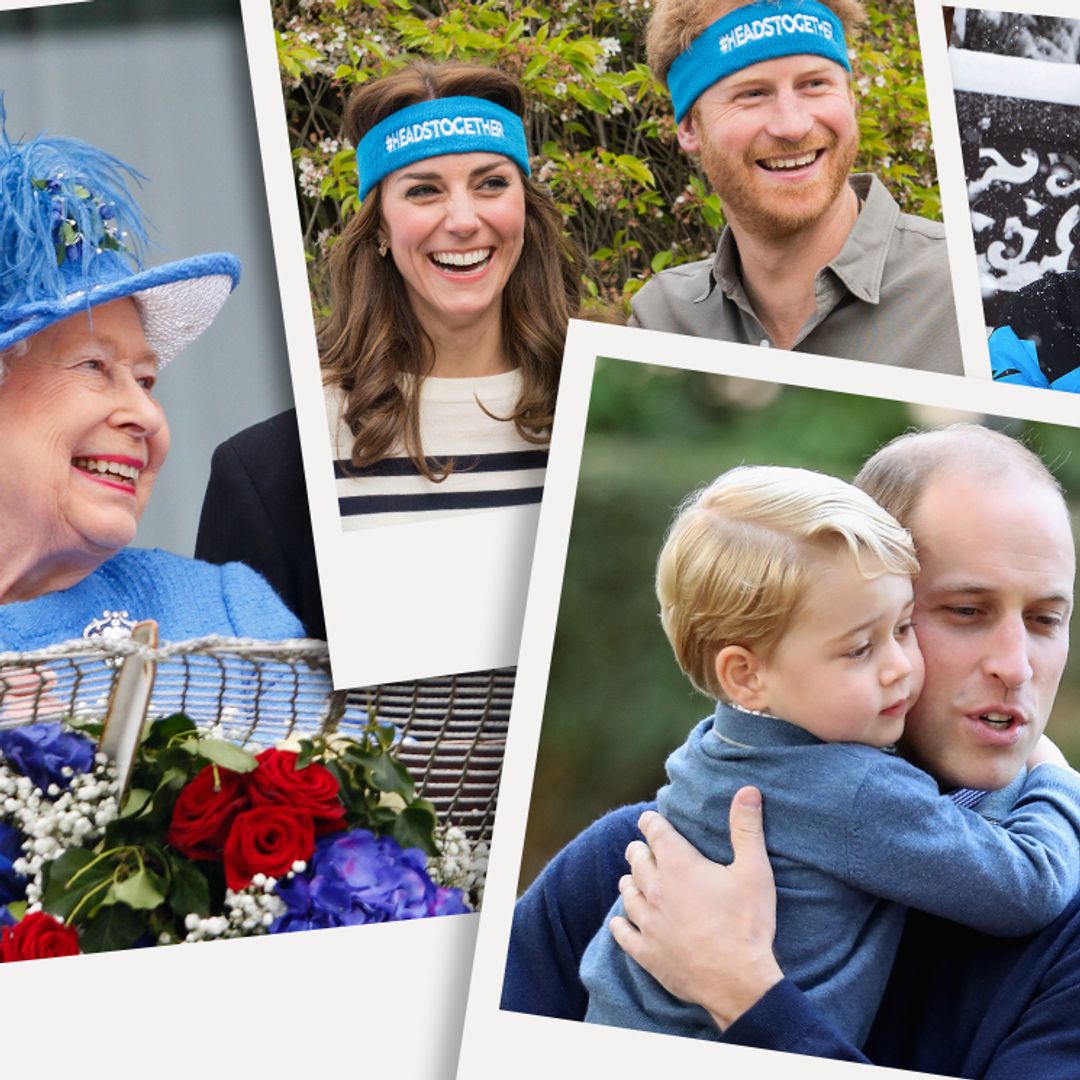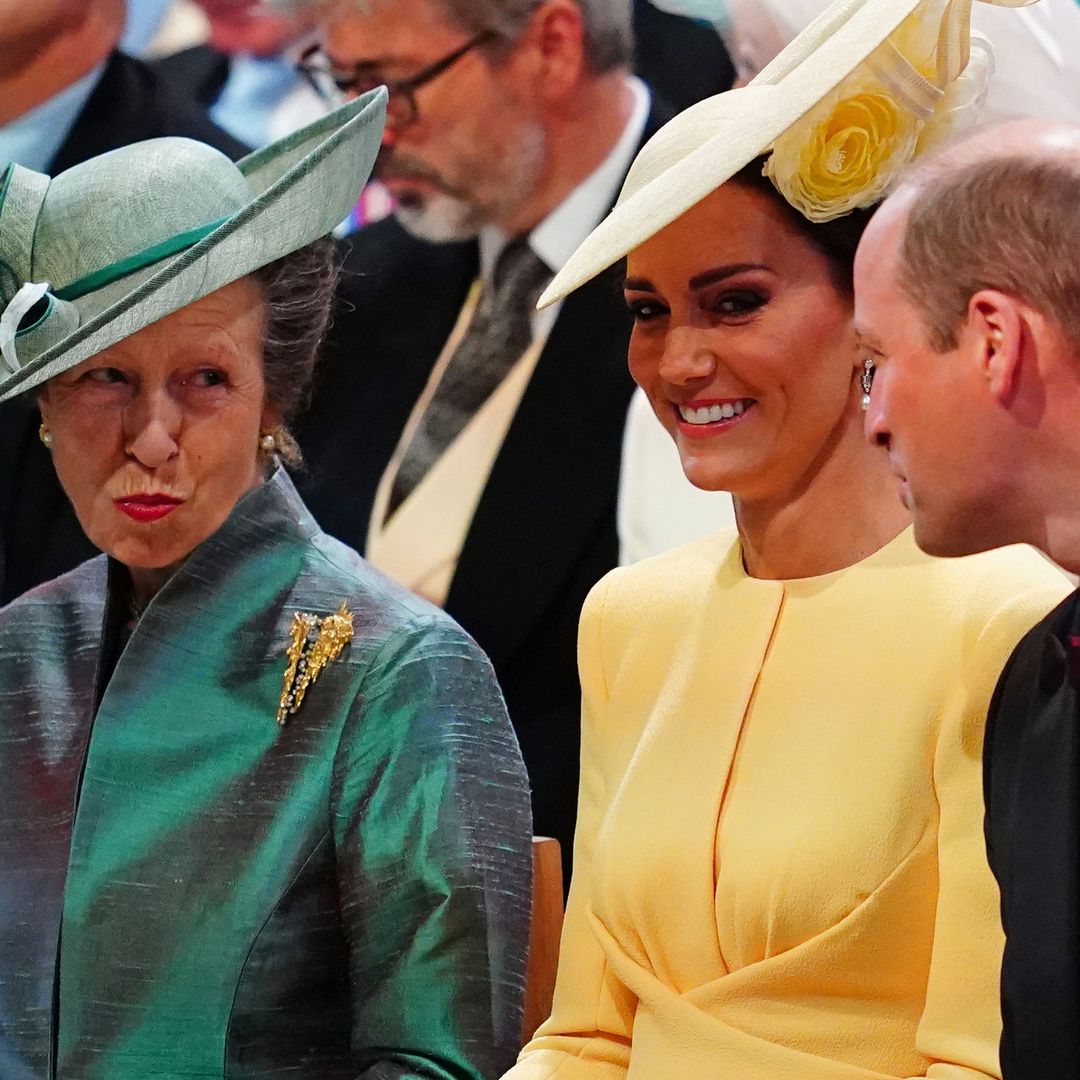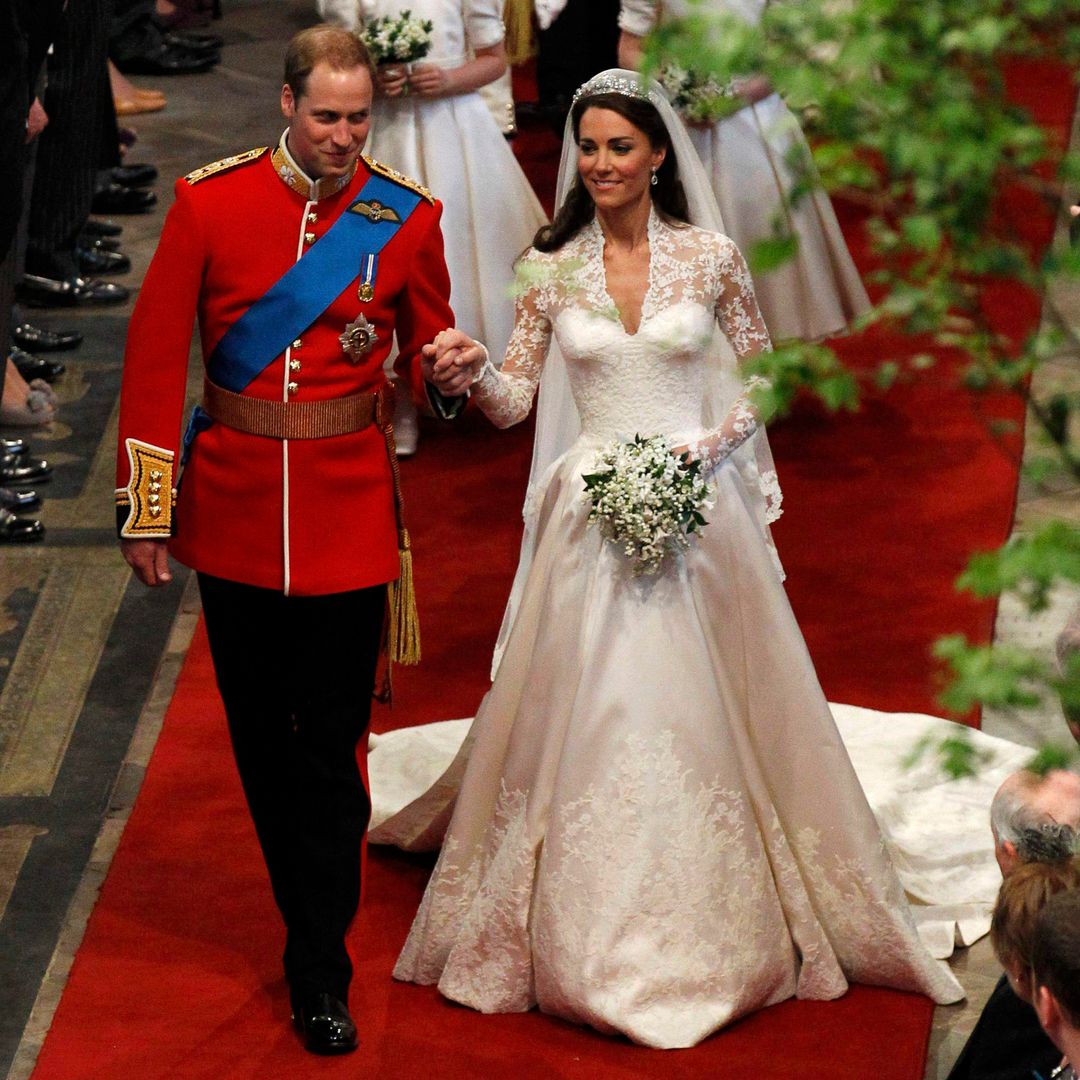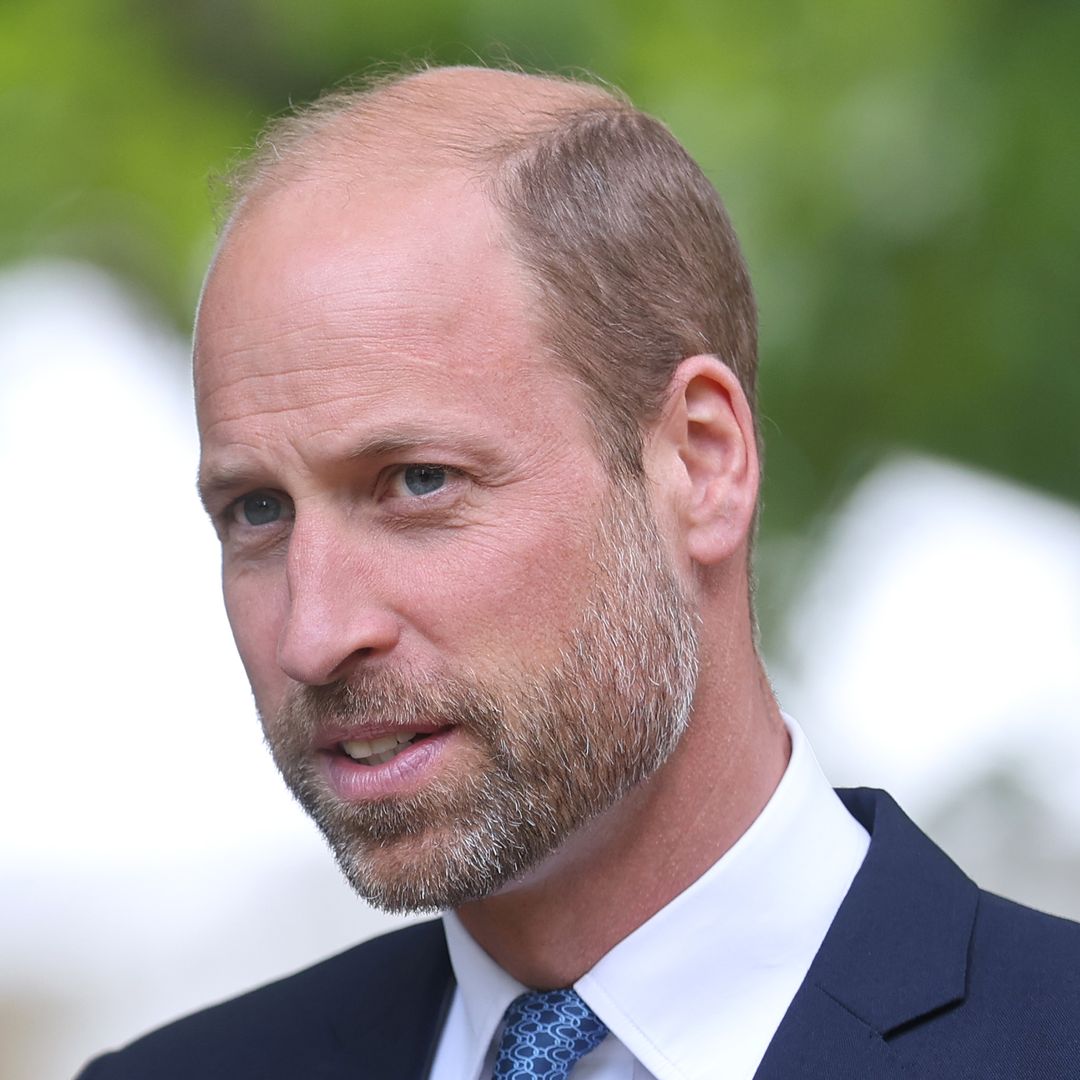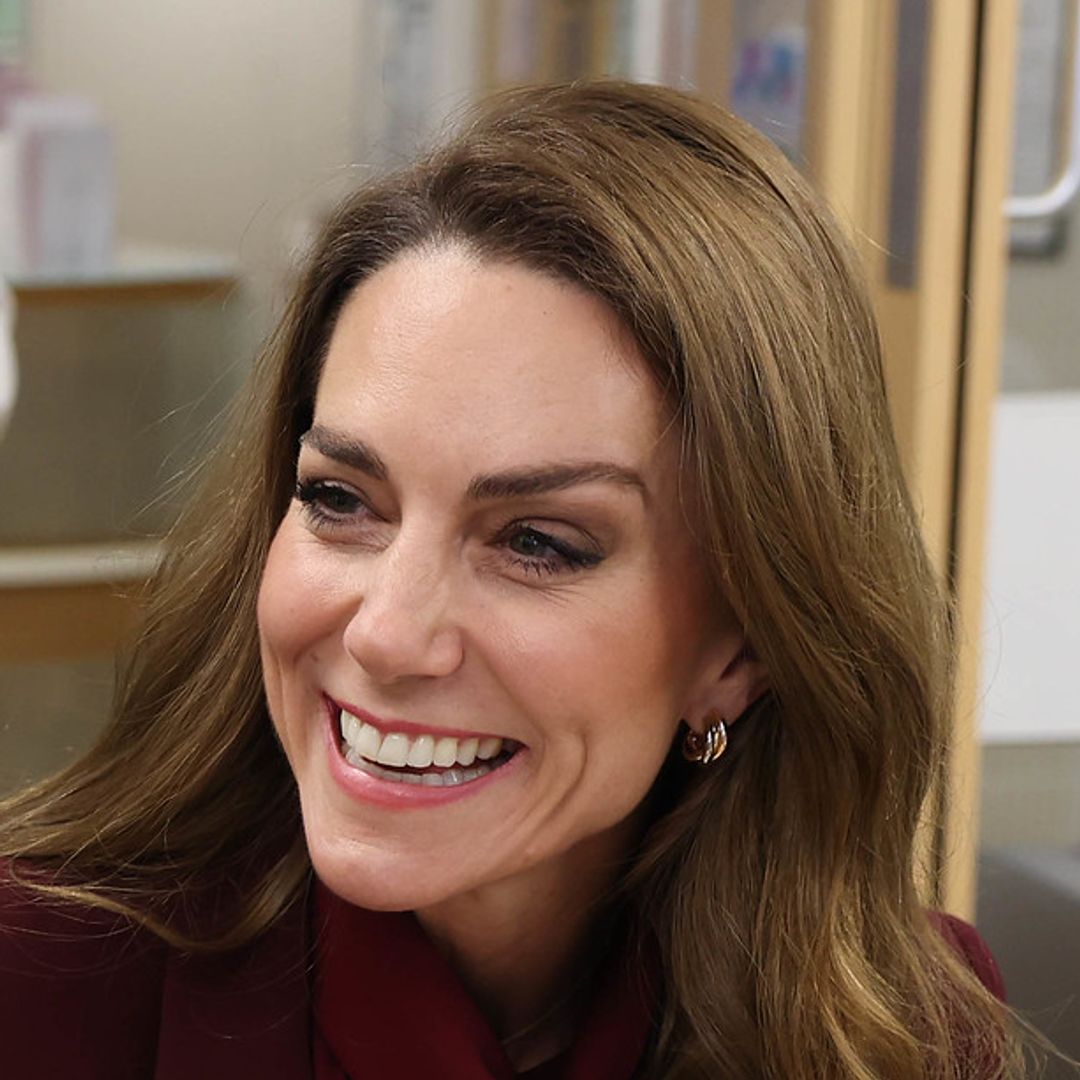The Prince of Wales has heard about the devastating human suffering caused by the ongoing war in the Middle East and Gaza, as he paid a visit to the British Red Cross headquarters in London on Tuesday.
William, 41, spoke to aid workers and heard first-hand about their experience of working to help victims of the conflict, saying he was "deeply moved as a father" by the whole situation.
The British Red Cross, which has an emergency fundraising appeal, is providing humanitarian support in the region in the form of first aid, ambulances, and medical support. The Red Cross Red Crescent Movement is leading operations, including Magen David Adom in Israel and the Palestine Red Crescent Society.
William heard about these operations in place, as well as the latest situation on the ground, in particular in Gaza.
On arrival he was met by Beatrice Butsana-Sita, CEO of the British Red Cross, and Liz Padmore, the organisation's chair. William had been due to visit the British Red Cross headquarters earlier with his wife Kate, but they had to postpone the visit after she was admitted to hospital for abdominal surgery. "It was important [to me] to get back in as soon as possible," William told Rory Moylan, head of region for the charity, during one conversation.
Referencing his visit to Israel and the Occupied West Bank in 2018, William said: "I obviously went there in 2018 and I feel… it had a lasting impression on me. So I have always been keeping an eye on what's going on. I am very keen to hear from you guys what's going on on the ground and how the Red Cross teams, in particular, are managing in very difficult circumstances."
Mr Moylan explained: "We really appreciate the interest you are showing in this. You will have heard it described as a catastrophic situation and that certainly matches our analysis. It has been getting worse for some time and has the potential to get exponentially worse to be quite honest... It is intensely traumatic for people, it has garnered global interest and global concern and has had impact across the region. It is extremely polarising, it is highly politicised. And with all of that, it makes it very hard for us as humanitarian workers to bring that agenda back to a humanitarian situation and not to be drawn into all those elements that I have just outlined. That makes it a very difficult environment to navigate."
Speaking about the situation in Gaza, Mr Moylan added: "There's no hospital that is functioning, staff are operating under intolerable conditions, without proper resources, they are displaced themselves and worried for their families. Food, people are effectively starving."
William, who was accompanied by his new international affairs advisor, David Hunt, listened intently and looked visibly concerned during the conversation.
He was also introduced to members of the charity's psycho-social team, who provide mental health support to those who are enduring trauma and suffering around the world. "How do you approach the situation, how do you start a conversation?" he asked employees.
On his way to the next part of the charity visit, William stopped to chat to employees who were sitting eating lunch in their open-plan office. "Lunch! Bit of Pret, [more Pret]… someone needs to have a burger. This all looks very healthy," William joked, before seriously thanking them for their efforts.
"I want to thank you guys for all your hard work. You are making a massive difference. You are dealing with a very serious, very traumatic, very hostile situation and you keep going every day. Extraordinary. Keep positive. It just feels like we go from one crisis to another."
William also took part in a video call with some of the teams operating in the region, who are supporting the humanitarian crisis in Gaza. He spoke to Pascal Hundt, senior crisis manager from the International Committee of the Red Cross, who called in live from Gaza.
"I don't even have words any more to describe what we are seeing and hearing," Mr Hundt said. "I've been doing this job for the past thirty years… I was in a delegation in Ukraine last year, and in many crises, Afghanistan, Syria, and this is something unprecedented. It is an incredibly dark page of history. In history we will remember what happened here.
"We are about five kilometers from Gaza, and when we see the bombing here we cannot only hear them but we can feel them, we can feel the shockwaves. You can imagine the distress it is for the local population that was forced to move several times with a health system that has totally collapsed, a hospital that needs not only to be protected as a structure but where the supply of drugs, of fuel, is not guaranteed. The hospital is becoming a cemetery.
"It is difficult and dangerous. We are closely coordinated with the parties, including the Israelis, but we have already had two serious security incidents. We have lost 14 volunteers who are working to try and alleviate the suffering of the people. It is extremely volatile and quite unpredictable. We see really hungry mobs jumping on trucks and looting because they are hungry and need to feed their families. It is extremely challenging."
Mr Hundt noted that the charity had already lost 14 volunteers.
Palace aides said that William, who will visit a synagogue at a later date to join a discussion with young people from different communities who are advocates against hatred and antisemitism, had "thought a lot about making a statement".
The statement was released just before William's visit to the British Red Cross, a charity that his grandmother the late Queen was patron of.
The Prince's office had consulted with the FCO before his statement was published, and aides said it was neither calling for a ceasefire or a two-state solution. "That is something we would not get involved with but UK government's policy is very clear on this," they added.
William's statement read: "I remain deeply concerned about the terrible human cost of the conflict in the Middle East since the Hamas terrorist attack on 7 October. Too many have been killed.
"I, like so many others, want to see an end to the fighting as soon as possible. There is a desperate need for increased humanitarian support to Gaza. It's critical that aid gets in and the hostages are released.
"Sometimes it is only when faced with the sheer scale of human suffering that the importance of permanent peace is brought home. Even in the darkest hour, we must not succumb to the counsel of despair. I continue to cling to the hope that a brighter future can be found and I refuse to give up on that."
Kensington Palace had previously said that William and his wife Princess Kate, who is not expected to carry out public-facing duties until at least Easter, were "profoundly concerned" by events that unfolded in late 2023, and continue to hold all the victims, their family, and friends in their hearts and minds.
The October 7 raids last year by the Palestinian militant group Hamas killed about 1,200 people, with around 250 taken hostage. Militants still hold around 130 hostages and a quarter of them are believed to be dead.
The war has killed at least 28,985 Palestinians, according to the Hamas-run Gaza health ministry.
William undertook the first official trip by a member of the monarchy to Israel and the Occupied West Bank in 2018, at the request of the government. During his visit he sat down for separate talks with Israeli Prime Minister Benjamin Netanyahu and the Palestinian Authority president Mahmoud Abbas.
